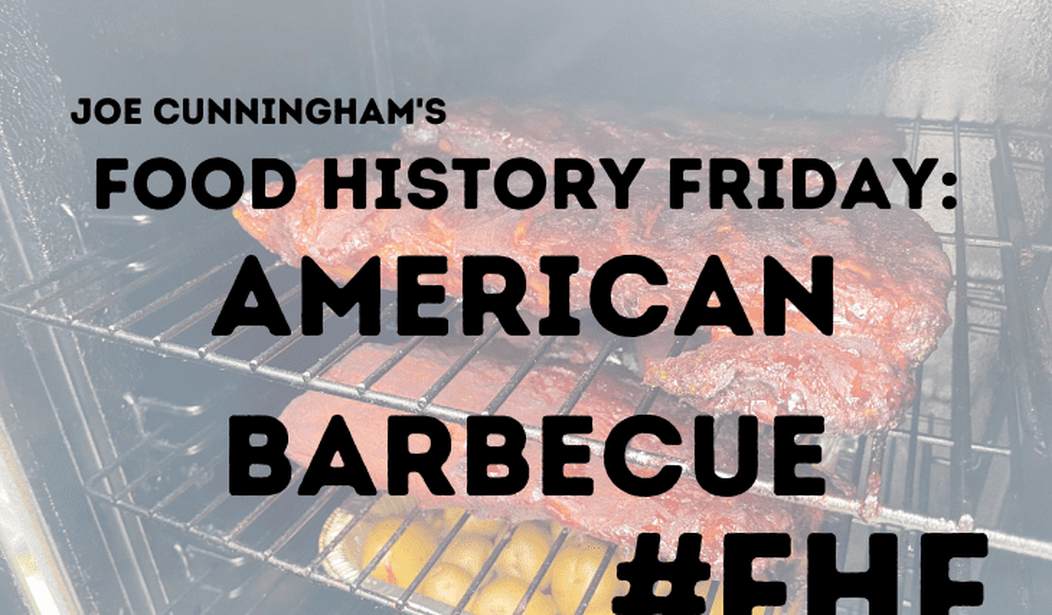Last week, the topic of conversation was Texas barbecue. Texas is unique in that its barbecue culture is centered around beef, thanks in part to Mexican influence in the southern part of the state and the influence of the westward expansion movement that brought cattle ranchers out west. A lot of American barbecue, though, can be found literally and figuratively between the Carolinas and Texas.
Typically in American barbecue, we narrow most of it down to four regions. The first two are the Carolinas and Texas, and the other two are Memphis and Kansas City. Today, we start in Memphis, which focuses primarily on pork ribs and pork shoulders, and is home to one of the biggest celebrations of barbecue in the world, the World Championship Barbecue Cooking Contest, held every year around this time.
In many ways, the history of barbecue in this region is similar to the history of it elsewhere: It starts with immigration to the United States, and continues with settlers moving into free and open land, particularly westward. That brings the settlers into Tennessee, bringing a lot of that rural, community-based barbecuing tradition with them. And, again, because pigs were the easiest to raise and breed, pork was the primary source of protein.
The tradition of barbecue evolved there as it did elsewhere, with barbecue becoming a community event. However, the divergence comes after World War II, when the sit-down restaurant industry boomed. In Tennessee, barbecue restaurants exploded into the scene, but it was their focus on ribs and shoulders that made them unique.
However, in one of my favorite moments in American history, Memphis barbecue went up against one of the most recognized entertainers in the 20th century. In a case that would be dubbed by most as “Bozo v. Bozo,” Bozo’s Hot Pit Bar-B-Q, which many considered the best barbecue Tennessee had to offer, and Bozo the Clown got into a trademark fight.
Via the New York Times:
Until 1982, Bozo’s Hot Pit Bar-B-Q and Bozo the Clown coexisted profitably. The restaurant survived Bozo Williams’s death and the construction of nearby Interstate 40, which siphoned off much of the community’s traffic. Meanwhile, Mr. Harmon and his clown clones charmed millions of American children. One was Caroline Kennedy, who successfully lobbied her father to let Bozo march in his parade on Inauguration Day.
The trouble started in 1982 when Mr. Williams’s daughter, Helen Williams, moved to register the trademark. Miss Helen, as she is known to everyone here, was considering opening a branch of Bozo’s on Beale Street in Memphis, and she wanted to make sure no one else could use the name for a restaurant. New Generation of Bozos
Enter Mr. Harmon, who had registered Bozo as an entertainer but not as a restaurateur. For a time in the 1970’s and 80’s, one heard more of Bebe Rebozo and Bonzo than Bozo. But with yuppies bred on the clown raising children of their own and cable television now carrying a Chicago-based Bozo to millions of homes, Bozo is resurgent. Mr. Harmon is training a new generation of Bozos and has licensed an entire line of Bozo baubles: Bozo pillowcases, Bozo bologna for Bozo lunch boxes, Bozo telephones that go “Yuk, yuk, yuk!” instead of ring-a-ling.
The restaurant would eventually win the battle, and no one really considers it much anymore. But anytime barbecue wins, America wins.
Understand, though, that Tennessee barbecue is not limited to just Memphis. All over the state, you can find unique takes on the art of smoking.
The barbecue geography of Tennessee is as rich and varied as the population itself. In the Appalachian Mountains to the east, you are likely to encounter smoked hog shoulders or hams served with a thick and sweet sauce. Perhaps the most famous and quintessential example of this style can be found at Ridgewood Barbecue in Bluff City, where a barbecue platter consists of thinly sliced pieces of smoked ham drizzled in a dark red, sticky-sweet sauce with home-cut French fries piled in a poetic mess on top. Journey into middle Tennessee in late July and you might be lucky enough to catch the St. Patrick’s Irish Picnic in McEwen, a fundraiser for the St. Patrick’s Church and School that has been ongoing since 1854. Don’t let the small size of McEwen (pop. 1676) fool you. It is not unusual to see 25,000 people show up for the event that was honored in the Guinness Book of World Records in 1988 as “The World’s Largest Outdoor Barbecue.” The barbecue features a secret sauce rumored variously to have originated in Ireland or developed locally in the 1920s.
That is one of the things that makes barbecue so unique throughout America and American history: It is incredibly diverse. There are legendary pitmasters, innovators, and competition legends who have their own takes on barbecue. No two cuts of meat end up tasting exactly the same, because the smoke and fire can be fickle.
But, in all these different regions, it’s the community aspect of barbecue that unites us, and makes us want to keep coming back.













Join the conversation as a VIP Member